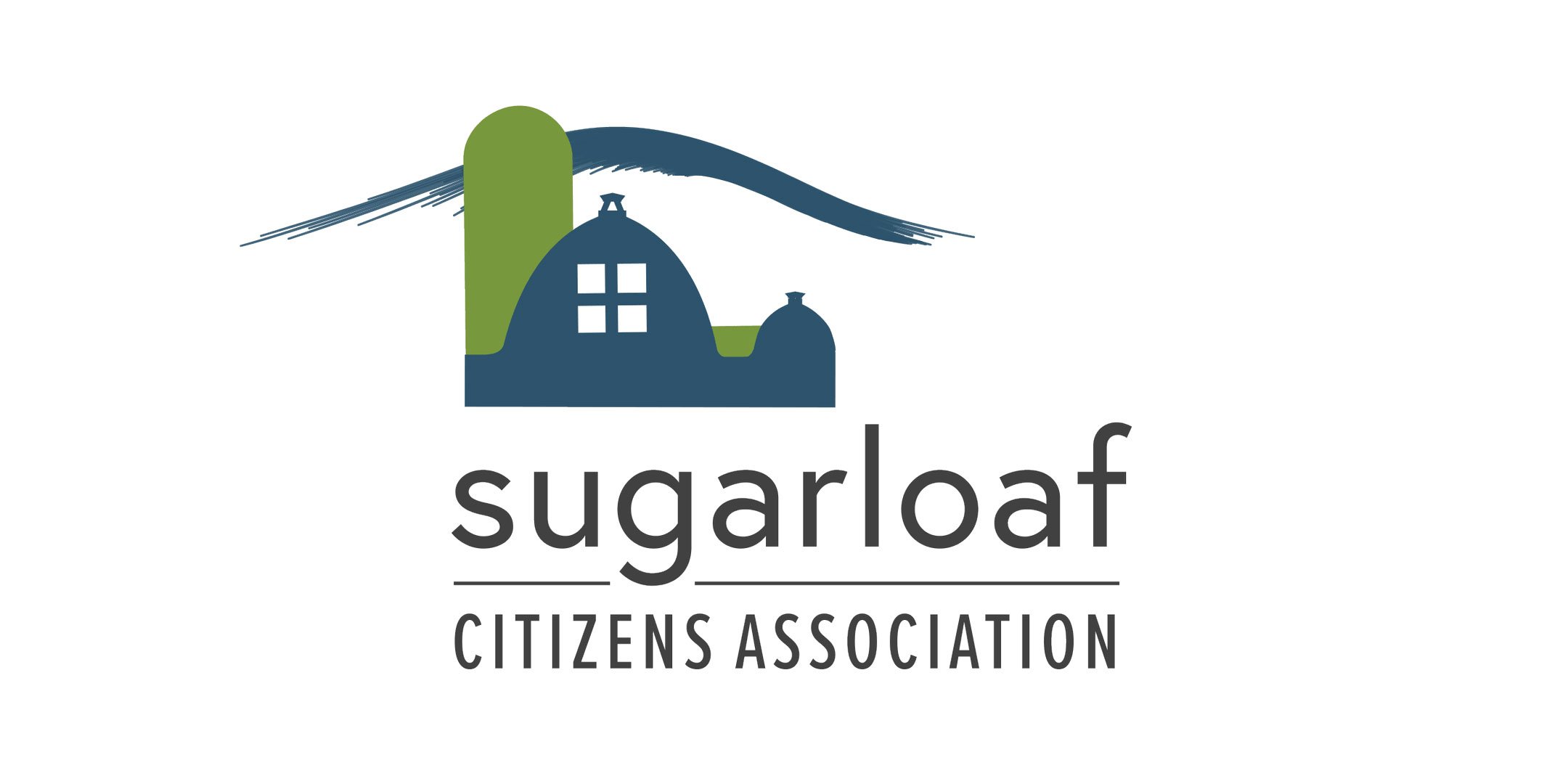Updated February 20, 2026
Take Action Now:
Sign up to provide public hearing testimony live on Zoom or in-person. A public hearing on both Council proposals is set for Tuesday, February 24.
Take two minutes to personalize and send a letter to the County Executive, County Council, and Planning Board urging a temporary moratorium on data centers.
A Major Proposal. Significant Impacts. Time for Careful Review.
SCA supports a moratorium on the assessment and approval of data centers in Montgomery County until the County Council approves regulations that govern where and how data centers can be built, and how they operate. Our rationale for this position is explained at the end of this web post, which otherwise gives you background on the data center debate and a history of the Dickerson project to date. This is now a fast-evolving story. We’ll update you regularly. Please comment and get engaged. See here for information on, and to sign up to testify at, a February 24 public hearing on data centers. Our community’s involvement in this important development will make a difference.
Explosive growth
Where data centers get built and how they operate has become a major technology, social, and economic issue in the past few years—nationwide. Driving the heightened concern is that the data center industry is exploding.
A few facts to start: The U.S. has more data centers than any other country—some 5,400 (of all sizes) as of the end of 2025. Another 3,000 are under construction or planned—most in the planning stage. Of those, more and more every year are large-scale (called “hyperscale” in the industry) with multiple buildings on large tracks of land (sometimes farm land).
Data centers of all sizes now consume around 4.4% of all power in the U.S. That’s forecast to rise to 8% by 2030.
A report released in January 2026 (by the North American Electrical Reliability Corporation, a non-profit) cited the mid-Atlantic as one of four U.S areas most vulnerable to electrical power shortfalls (and blackouts) over the next five years—largely due to data centers.
Unexpected strains on local economies are beginning to show as well. The data center explosion is beginning to monopolize the construction industry and its workers—carpenters, electrical workers, certain engineers. In some states, that’s leaving fewer such skilled workers to build homes amid a nationwide shortage of affordable housing.
Water usage is a major concern. One study estimated that data centers consumed some 17 billion gallons of water in 2023 for cooling—some of that in states like Arizona where long-term water supply problems are growing.
And lest there be any doubt, most studies now show that data centers have contributed to recently rising rates for home electricity—though the magnitude of the impact differs from region to region.
The above issues need urgent social and political attention. But so do the causes. There’d be no explosive data center growth without the equally explosive growth by government, industry and consumers of data use—cell phones, tablets, computers, the internet, email, texts, streaming, cloud storage, and, of course, now AI.
Here’s one eye-popping forecast: total data generated worldwide is projected to grow from 182 zettabytes in 2025 to 394 zettabytes in 2028—within just 3 years! A zettabyte is 1 trillion gigabytes. One zettabyte is roughly equal to as much bits and bytes of data as there are grains of sand on all the world’s beaches.
At the highest level of concern is this question: will the economic and social transformation predicted from AI be worth the risks it poses—that no one yet fully comprehends. As many have noted, this is a classic case of building the airplane as we fly it.
Our region
A big chunk of the national data center explosion is right in our neck of the woods. Northern Virginia is home to the highest concentration of data centers in the country (665) and is one of the busiest data hubs in the world.
It was thus perhaps only a matter of time before the industry cast its eye across the Potomac River. That began in earnest in 2021 with a proposal for a 2,100-acre data center campus near Adamstown in Frederick County. The proposal included 43 miles of underground fiber optic cables beneath the Potomac River linking the proposed campus to the Loudoun County hub.
So, in large part, the Adamstown location is an expansion of Loudoun County’s infrastructure—which provides data storage, computation, web services and AI tools to the federal government and its contractors in the DC metro area, as well as to local governments and metro area businesses.
Amid growing concern and outright opposition, Frederick lawmakers in late 2025 adopted new zoning that actually expanded the potential footprint of the Adamstown campus to 2,615 acres. Meanwhile, the under-river cables were laid in 2023-2024 and construction has started on several data center buildings. A few of those are projected to start operating this year. The entirety of the Adamstown project is not expected to be completed until the mid 2030s. Total investment is estimated at $25 billion, making it one of the largest industrial projects in the mid-Atlantic region.
By comparison, the proposal for a 110-acre, 5-building data center campus in Montgomery County, near Dickerson, is relatively small. However, if approved, it would be one of the larger industrial projects in the county in years. Notably, it, too, is tied into Loudoun County’s infrastructure via a portion of under-river fiber optic cables installed at the Dickerson site in 2024.
These VA-MD interconnections could prove significant over time. The current federal (under Trump) and Maryland state (under Wes Moore) administrations are highly data center-friendly. They may see economic advantage in the linked infrastructure being created in the Virginia-Maryland area. A further concern is federal and/or state usurpation of county authority over where data centers can be built.
The Dickerson project
In August 2022, a company called Terra Innovations (also referred to as Terra Energy) bought 740 acres in Dickerson that includes a decommissioned (in 2020) coal-fired power plant. About 255 of the 740 acres are zoned “heavy industrial” (where the power plant was sited). Most of the remaining 485 acres is zoned “AR” for Agricultural Reserve.
Nearby, also on industrial zoned land, are the County’s trash incinerator, a natural gas power plant, and a 100-acre yard waste compost facility.
Notably, the entire area’s access to electrical infrastructure makes it highly desirable for industry.
Terra’s owners have kept SCA and Montgomery Countryside Alliance (MCA)—as well as County officials, of course—apprised of some of their plans since 2023.
In January 2024, Terra submitted an application for conditional use approval of the data center site (not the actual data center) to Montgomery County Planning. MCA and SCA communicated with planning staff and Montgomery County executive that the conditional use application did not satisfy the legal requirement for the permit.
In October and November 2024, Planning officials held initial internal sessions and hearings on the proposal. At those, Terra acknowledged the proposal was a preliminary land use submission and did not contain any final specifications for a data center campus. The company testified that the site could or might accommodate up to seven buildings and a total of 500,000 square feet of internal space.
Caroline Taylor, MCA’s executive director, was the only community member that provided testimony at the October 2024 quasi-judicial hearing before the Montgomery County Office of Zoning and Administrative Appeals (OZAH). She did so on behalf of MCA and SCA. Ms. Taylor raised concerns that the proposal lacked sufficient detail to grant any kind of final or even near-final approval. For example, Terra provided no site plans, specific details about energy/power use, or the use of Potomac River water for cooling purposes. Terra indicated they or a data center company would provide all that in due time.
Ms. Taylor asked if the OZAH hearing examiner had ever granted such a preliminary permit. The answer: No. Ms. Taylor further asked whether the public would be afforded participation when Terra would return to modify the permit with the missing details. The examiner said it could be considered a minor modification not requiring a hearing. Ms. Taylor pushed back, asserting that the follow up-regulatory filings should constitute a “major modification,” triggering a public hearing.
In late 2024, the OZAH hearing examiner granted Terra a conceptual “conditional-use” approval for placement of a data center on the land. The rulings made it clear that Terra (or a data center company, or both) would need to submit an application for a “major modification.” (“Conditional use” means a project does not have any automatic path to facilitated approval and will be judged entirely on its merits and details, and will most likely be approved with conditions County’s regulators place on it.)
MCA and SCA in submitting written testimony requested that the testimony be added to the hearing record. Those concerns covered issues related to water, energy, and how this large power draw and carbon emitter will fit in with County and State zero emissions policies and goals.
The two groups (MCA and SCA) also pointed out that the county regulatory structure under which the conditional land-use was granted was not appropriate to the task. That structure was created years ago for “cable communications” companies. A data center is not a cable communications company. Digital infrastructure is an entirely new land use.
In addition, we noted that Terra had not yet produced a comprehensive site plan that answered basic questions about the actual data center project.
Terra’s attorney called these concerns and requests immaterial and asked that they be given no consideration and be stricken from the record.
The hearing examiner did not grant the applicant’s request to strike the community testimony. When faced with the possibility of an appeal of the OZAH approval by MCA and SCA, Terra agreed to two conditions to their conditional approval: (a) that the sole source aquifer that supplies water to much of the up-county area be off bounds for data center cooling, and (b) that generators not be used as back-up power for the data centers. (See below for how that has now changed.)
The examiner added the conditions to the conditional use permit.
As best as we can make out, Terra and a data center company called Atmosphere spent most of 2025 sealing a deal—likely as Atmosphere did due diligence on the Dickerson property and their prospects for regulatory approval and success. With data centers, that includes key conversations and perhaps initial agreements with a client or clients who would actually install the servers (computers) and other equipment in the buildings. Atmosphere would also have to have scoped out a construction company to build the buildings. During this period, Atmosphere filed with the Maryland Department of the Environment for both withdrawal and discharge permits to/from the Potomac River upstream from the WSSC water intake serving millions in the Washington metropolitan area. We are monitoring those submissions
Fast forward to December 2025
Atmosphere submitted an application for a major modification to Data Center plan to the Montgomery County Planning Commission. That proposal is not yet public and as of mid-February had not yet passed through the regulatory intake process.
Atmosphere has, however, publicly divulged some details. They did so to us (MCA and SCA) in a Zoom meeting on Jan. 30, 2026. We appreciated the offer and it was a cordial conversation.
A week later, a media relations firm hired by Atmosphere released this 4-page fact sheet on the project. In our Jan 30 meeting with Atmosphere, its CEO and staff told us the company has one client / tenant for the project. They declined to reveal who that client was. They further claimed that said client would not be using the campus for “AI learning and training.” Instead, the project would be a “working data center.”
They estimated maximum water use for cooling at 500,000 gallons a day with an “average daily withdrawal of 69,300 gallons per day”—with “all withdrawals subject to final design and state review and permitting.”
The company’s leaders also confirmed that the Dickerson project was the company’s first data center.
County government gets engaged—big time
County Executive Marc Elrich and the County Council have since early January 2026 become actively engaged on this issue. In January, several Council Members proposed a draft zoning ordinance that would establish a regulatory framework for data centers. Another member, Evan Glass, proposed an advisory task force and year-long study of data centers.
At the same time, Mr. Elrich released his own draft regulatory framework for data centers, which covered much of the same points as the proposed zoning ordinance.
On February 3, Elrich convened a public forum on his framework and the issue at large. Some 100 to 125 people attended. Before the session, Elrich told a media outlet he favored a 6-month moratorium on approval of any data center until the Council approved regulations. In the same media piece, Council president Natali Fani-Gonzalez said she opposed a moratorium.
Roughly half the 40 or so attendees who spoke at the February 3 session supported a moratorium. Altogether, a majority of speakers opposed data centers outright or expressed skepticism they would be beneficial to the county and its residents.
A public hearing on both Council proposals is set for February 24. (See the details here.)
On February 6, Marilyn Balcombe, who represents the Dickerson area, held an open session with up-county residents devoted to the data center issue. At that meeting too, skepticism about the benefits dominated. Balcombe said she did not favor a moratorium but announced that the Council’s lawyers were looking into its legality.
Moreover, Ms. Balcombe expressed the view that the Dickerson project might be deserving of being “grandfathered-in” since Terra began seeking approval for the project over a year ago.
Our position
We support a six-month moratorium on the assessment of any data center proposal, including the Atmosphere Project. The County Council should take up the proposed zoning ordinance and Council Member Evan Glass’s proposal forthwith and put regulations in place as expeditiously as possible.
We do not support Atmosphere being exempted from the new regulations, or grandfathered-in, in any way.
The Atmosphere proposal is sufficiently different from the proposal Terra submitted and received approval for in fall 2024. To site just one profound difference: Terra agreed to a condition that no diesel generators would be attached to the project. Atmosphere’s proposal is very clear that diesel generators will be used (See Atmosphere’s fact sheet.).
But, most importantly, whatever data center regulatory framework the Council adopts will supplant the one that existed when the Terra project garnered initial approval in fall 2024—under the rubric of “cable communications.”
We appreciate that the relevant regulatory bodies in the fall 2024 had to use the information at hand. But the process is now altered significantly, and it simply makes no sense to allow Atmosphere to evade pending regulations covering the actual building of and operation of a data center campus—just because the process under Terra has begun over a year ago. Such a legal ruling by the county could in theory mean that Atmosphere could argue in court that they not be subject to the new regulations at all—an unfathomable outcome.
Read More







